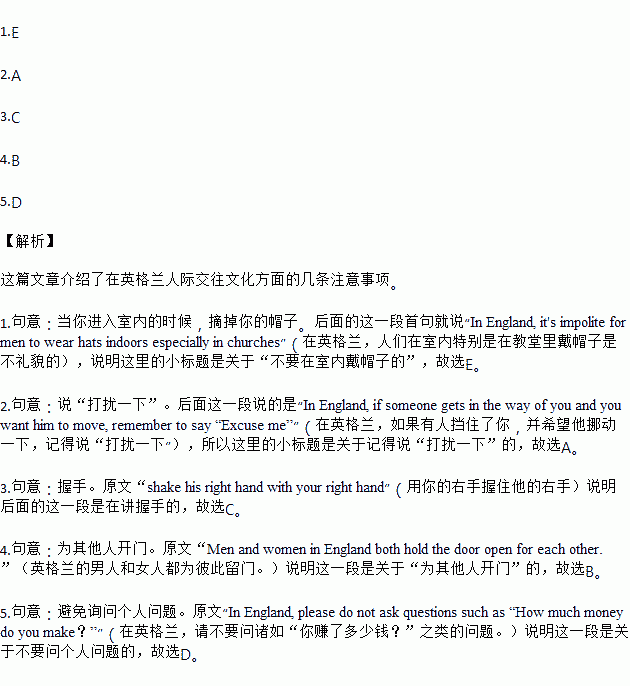题目内容
请从所给选项中选出符合各段意思的小标题。
71.________
In England, it's impolite for men to wear hats indoors especially in churches (教堂).Now, it's becoming more common to see men wearing hats indoors.However, most people still see that as being impolite, especially older people.
72.________
In England, if someone gets in the way of you and you want him to move, remember to say “Excuse me” and he will move out of your way.
73.________
In England, when you are first introduced to someone, shake his right hand with your right hand.
74.________
Men and women in England both hold the door open for each other.It depends on who goes through the door first.
75.________
In England, please do not ask questions such as “How much money do you make?”, “How much do you weigh?” or “Why aren't you married?”.
A.Say “Excuse me”.
B.Open doors for other people.
C.Shake hands.
D.Avoid asking personal questions.
E.Take your hat off when you go indoors.
1.________
2.________
3.________
4.________
5.________

